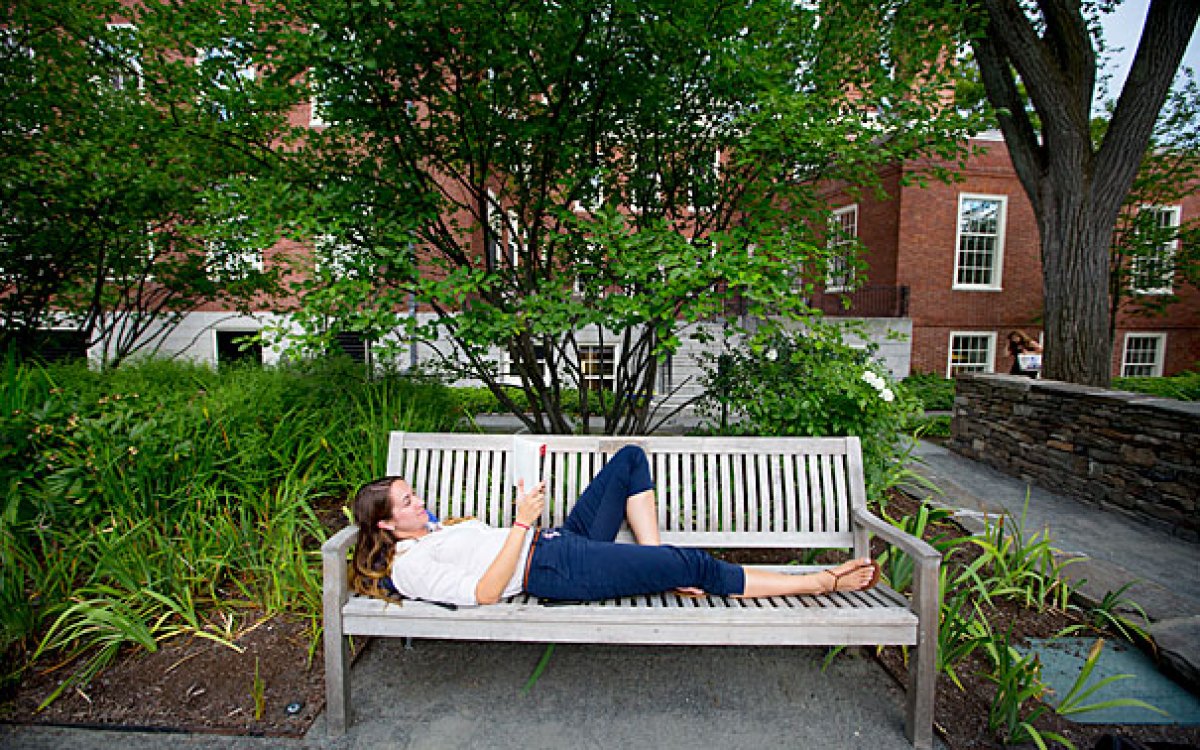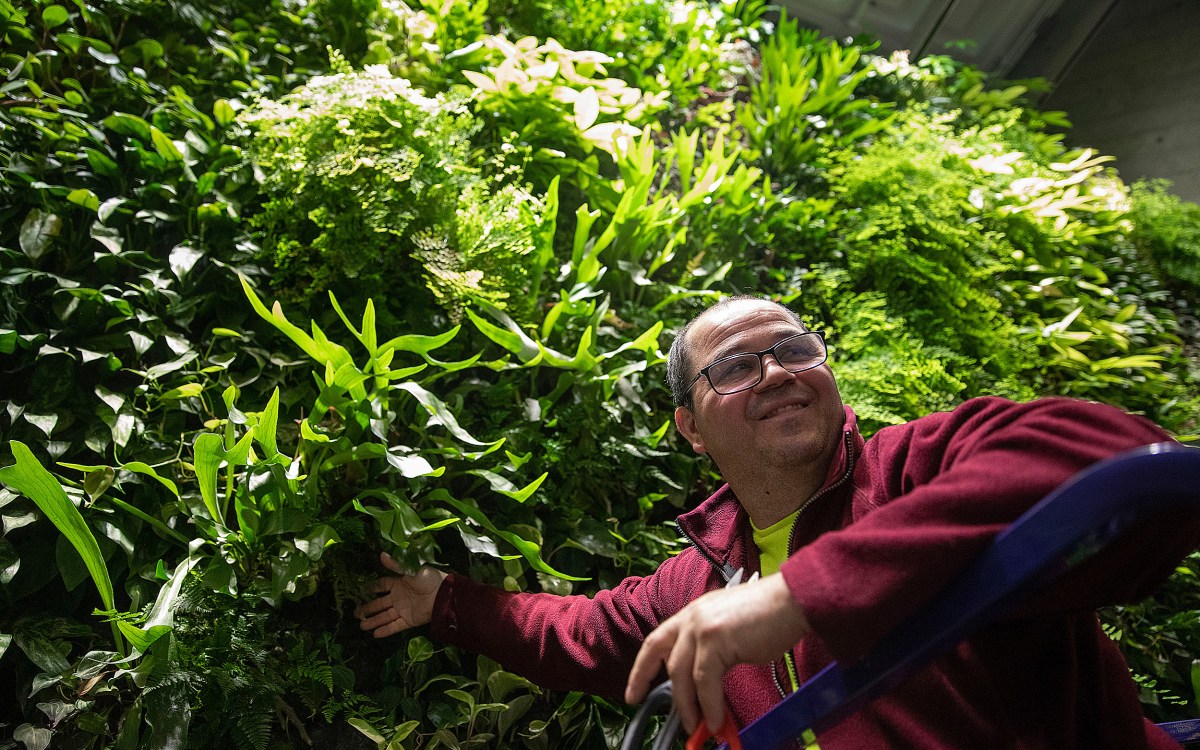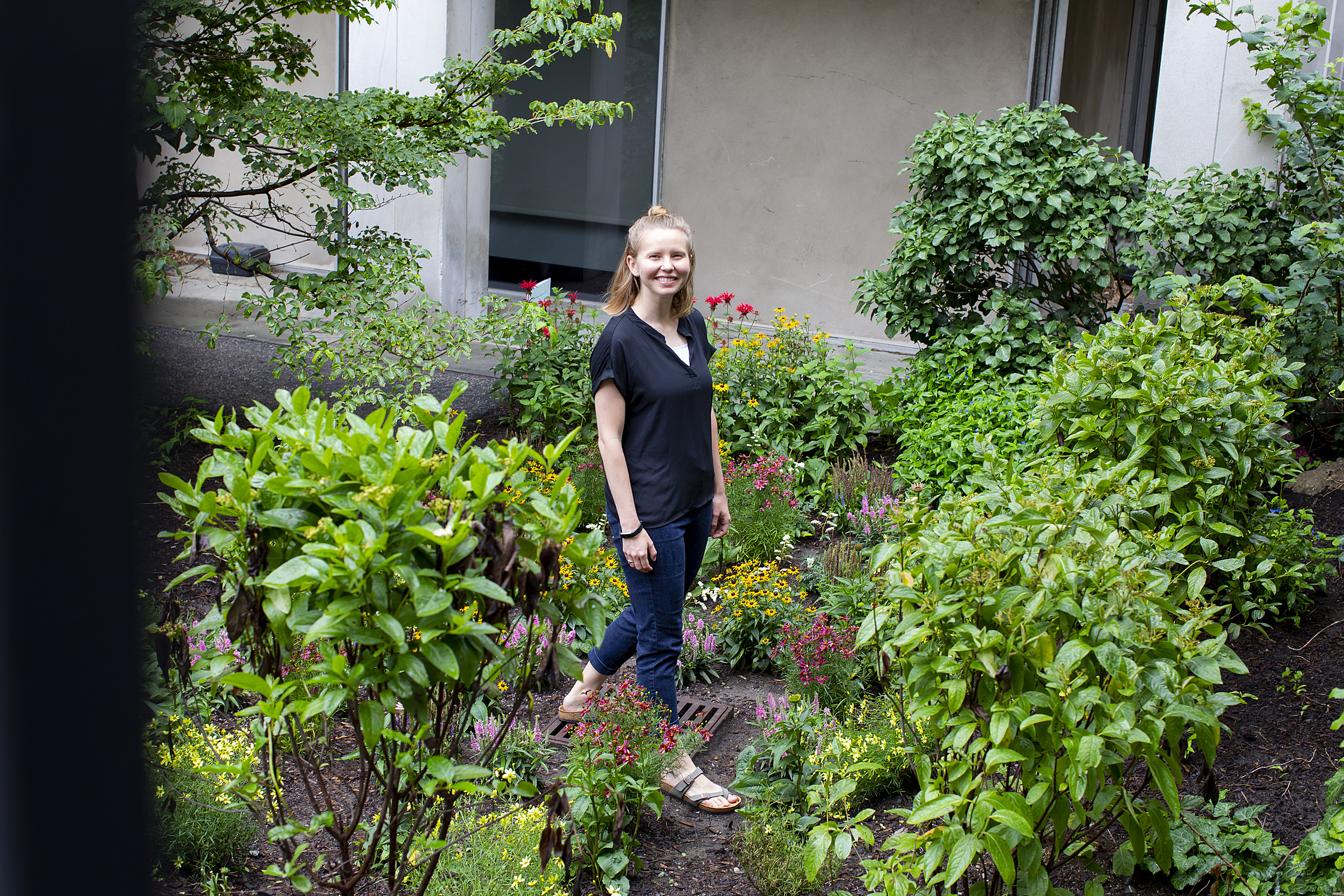
Christiana Akins from the Office for Sustainability worked with students to create rain gardens at Mather and Leverett Houses. The gardens help to alleviate some of the water puddling after rainstorms.
Photos by Rose Lincoln/Harvard Staff Photographer
Singing in the rain
Students bring rain gardens to campus as sustainable, aesthetic way to improve water quality and prevent flooding of walkways
When six Harvard College students noticed growing pools of rainwater on campus walkways, instead of hopping over or tiptoeing around them, they set out to fix the problem.
During the spring, the students, as part of their work with the Green Think Initiative, led a successful effort to bring a pair of rain gardens to campus that will help absorb storm water overflow and filter out chemicals and pollutants. They are believed to be the first rain gardens on campus, said Paul Smith, associate manager of Harvard Landscape Services.
“One of the great things about this project is not only is it a good symbol of sustainability, but it is showing that Harvard supports active student movement toward that goal,” said Taisa Kulyk ’22, a member of the Green Think Initiative, a first-year student think tank based at the Harvard Office of Sustainability.
The gardens were recently installed by Harvard Landscape Services in the Leverett House and Mather House courtyards as part of a pilot initiative. Next year, the University hopes to add more of them if they prove effective at flood reduction.
The effort comes at a time when rising temperatures associated with climate change have led to increased rainfall, especially in the Northeast. In 2018, for example, Massachusetts and several nearby states experienced their rainiest year on record.
At Harvard, green spaces, like the Yard, often turn into a series of ponds during prolonged downpours or when drain systems back up. Eventually the water spills onto walkways, turning them into obstacle courses for pedestrians.
The five first-year students from this year’s Green Think Initiative and their sophomore student coordinator sought a solution that was both sustainable and aesthetically pleasing. They launched their rain gardens project.
The recessed gardens use a mix of soil, sand, compost, and mulch that retains water and either releases it slowly into a drain or uses it to feed the native flowers and deep-rooted shrubs planted in each. The gardens also act as a natural filter for many of the pollutants found in stormwater runoff.
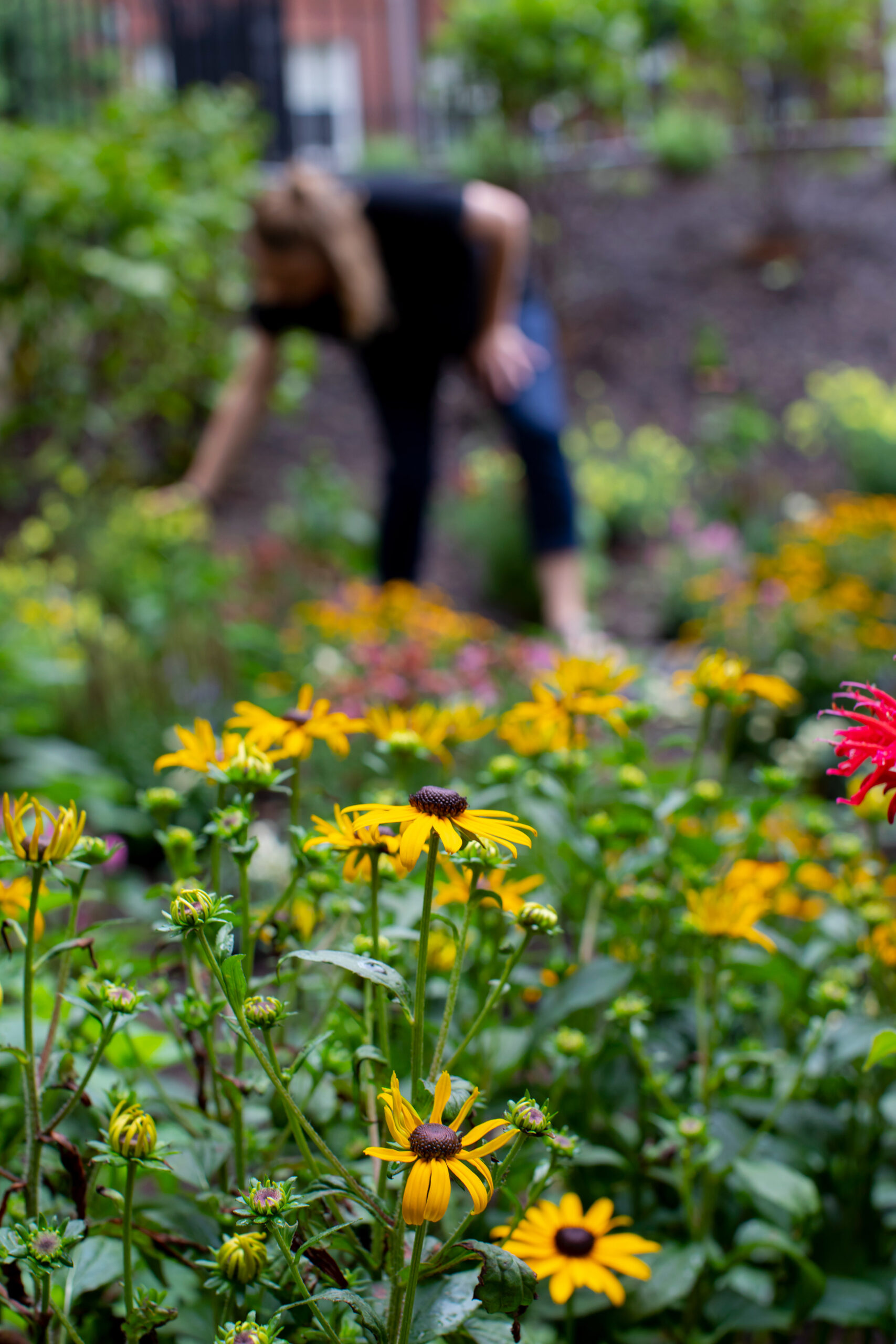
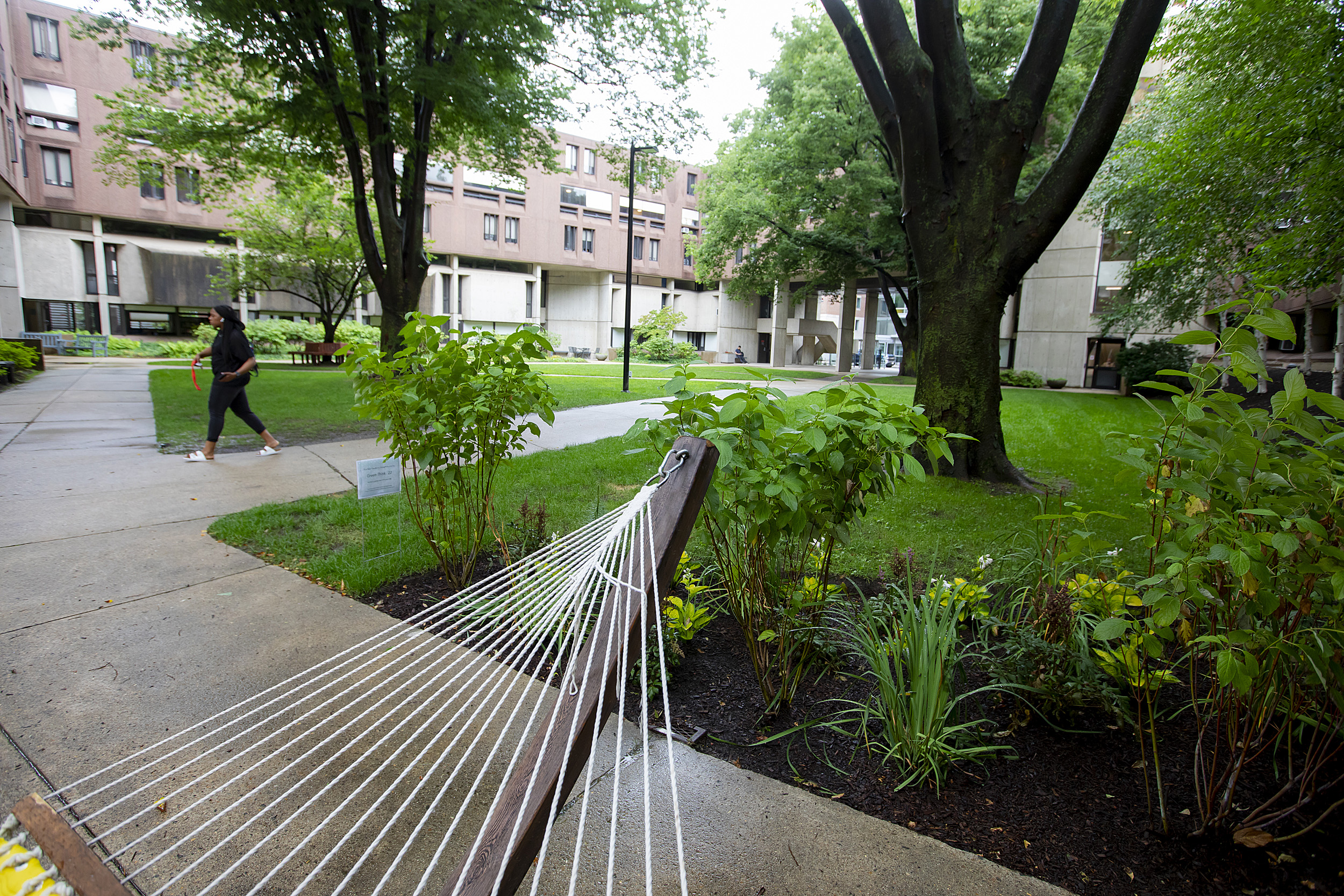
The rain garden blooms at Leverett House.
To describe the extensive research they conducted and otherwise educate fellow students, The Green Think builders plan to display signs at each location to explain what the gardens are and how they work.
As part of the project, the students had to break down the cost of the gardens for administrators and scout out potential locations. The experience allowed the group to gain experience in project management, communication, and negotiation. For some it has launched or solidified plans to explore careers in related environmental fields.
“When I see them be as successful as they’ve been this past year I can’t help but feel like this is more than just a volunteer organization,” said Christiana Akins, who oversees the program at the Office of Sustainability. “It’s a way to change their school experience or even their lives.”
Past Green Think projects have included installing water-bottle filling stations on campus and leading composting efforts in first-year student dorms and restrooms around campus.
Nazneen Cooper, assistant dean of campus design and planning in the Office of Physical Resources & Planning, was one of the administrators who this year’s Green Think students approached with the idea. She was impressed with the initiative the students showed.
“There was an awareness regarding flooding … acknowledging that there are a lot of issues with heavy rain … that there is soil compaction as a result of urban usage and that some of the drains can’t handle the amount of water as quickly as we would like them to,” Cooper said. “They made these observations which I thought were insightful and helpful, and then they came up with a suggestion.”
The students funded the project with $6,000 in grant money from the Office of Sustainability and from the Harvard Undergraduate Consulting on Business and the Environment.
In addition to helping stem campus flooding and educating other students, Green Think members hope the gardens serve as inspiration.
“I know a lot of students initially are lost as to how they can make a change or difference in their community in regards to global climate change,” said Brian Seo ’22. “A lot of people think that they should start a program or do big things to change or help, but though this program I [hope] people see that it’s not always about that. It’s sometimes about taking small steps.”
Alida Monaco, the group’s sophomore coordinator, agreed.
“It’s going to be the millions of small changes that end up effecting the greatest change,” she said.



